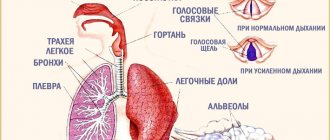Every nursing mother has moments when the baby asks for the breast every hour, and this is very exhausting physically and mentally. There can be many reasons for such a child’s behavior, and they are not always clear to young parents.
It’s worth saying right away that asking for the breast often is completely normal for both a newborn and an older child. You just need to survive this period, because in young children the feeding regime changes quite quickly, and soon everything will return to normal. But we will still tell you what this behavior may be associated with and what you can do - first of all, to calm yourself down.
Another important point is that such frequent feeding is almost never associated with a lack of milk. The fact is that milk is produced in the breast all the time the baby sucks. And with established lactation, it simply cannot be “missed.” If we are talking about the very beginning of breastfeeding, then for your peace of mind you can conduct a “wet diaper test” - calculate whether the baby urinates enough during the day. If all indicators are normal, then frequent breastfeeding definitely has nothing to do with the mother’s lack of milk.
What could be the reason for this child’s behavior?
Main reasons
Why does the baby constantly ask for the breast? This may be due to physiological reasons or discomfort. For a newborn, for example, it is completely natural to ask for the breast very often. The child adapts to the conditions of the outside world, learns to exist separately from the mother’s body, and this takes a lot of effort. After a month, you can begin to control the frequency of feedings and gradually adjust them to your daily routine. After six months, feeding on demand is not necessary.
But why does a child constantly ask for the breast at 1 month, 3 or 6? The reason may be:
- sudden growth of the child, in which the nursing mother’s body cannot produce enough milk to meet the baby’s needs;
- unsettled diet of the child;
- lactation crisis (decreased milk production by the mother’s body);
- feeding by the hour (today pediatricians recommend feeding the baby on demand);
- emotional discomfort, anxiety, irritation or fatigue;
- pain caused by colic in the tummy, increased body temperature due to illness, teething;
- the desire to be closer to the mother (the first three months of life are called the fourth trimester of pregnancy, because the newborn is still very dependent on her).
Need for contact
The first three months after birth are called the fourth trimester. At this time, newborns require regular contact with their mother, due to the need to feel protected. A young mother needs to be sure that the baby needs food and does not just want to be closer. You need to take the newborn in your arms, stroke his head and back, talk to him quietly. If the child does not stop crying and being capricious, then you should put him to the chest and let him get enough.
Hunger
In the first few weeks after the birth of the baby, the mother’s lactation is just establishing, so some babies may well experience a lack of food. In the first month after birth, almost every newborn baby constantly asks for the breast, which is a physiological norm. Milk is produced in response to suckling, so when breastfeeding on demand, the natural processes of mother and baby are synchronized. As they grow older, the lactation function gradually returns to normal, and the baby establishes a measured diet. Within a few weeks of starting breastfeeding, milk will be produced in exactly the amount needed.
Jealousy of the younger
If a mother decides to tandem feed her children, then such behavior by the older child is almost inevitable. He is not yet able to understand why all the parents’ attention has switched to the newborn, so he subconsciously tries to become small too - he begins to constantly ask for the breast, dirty his pants and be capricious.
This behavior cannot be radically eliminated; it goes away gradually when the older child begins to get used to the younger one. But you should try to pay special attention to the firstborn, so that the only way to communicate with the mother is not feeding - and then breastfeeding will become less frequent.
Pain or fatigue
For a baby in his first year of life, a loving mother is the only reliable source of protection. Therefore, the baby constantly asks for the breast when stressed, sick or anxious. He can express requests for help only in the form of crying or whims. During the newborn period, discomfort can be caused by intestinal colic, teething or fever. With abdominal pain, the child constantly asks for the breast and arches his back. When applied, he feels maternal warmth, and this calms the pain a little. That is, feeding will not only saturate the baby’s body with all the nutrients necessary for growth, development and (if necessary) fight the disease, but will also calm the nervous system and relieve pain.
Desire to calm down
Newborns may experience anxiety that makes them fussy. If your baby constantly asks for the breast and freaks out, it may be worth following his lead to compensate for the anxiety. Older babies may be fussy during weaning. Pediatricians recommend stopping breastfeeding no earlier than one year of age, and natural weaning (when the baby has outgrown the need for breastfeeding) usually occurs between the ages of one and three years.
Growth spurt
At approximately 3, 8-9, 15-16 months, most children experience crisis periods. After them, the child usually begins to demonstrate new skills and abilities, and a certain developmental leap occurs, which is quite noticeable from the outside. But while this period lasts, the baby can often and for a long time attach itself to the mother’s breast, including at night.
This is normal behavior at this age and nothing to worry about. A week or two will pass (occasionally a month), and the number of feedings will return to normal.
As you can see, there are quite a few reasons why a baby may constantly ask for the breast. This article lists only the most common ones, but not all of them. Some can be dealt with, others not always. Therefore, the best advice for a mother in such a situation is to adapt and wait, while at the same time monitoring possible signs of trouble (for example, illness, etc.) so as not to miss really serious problems.
Lactation crisis
During the month, the baby constantly asks for the breast, usually due to the discrepancy between the volume of milk produced and his needs. The problem arises if the baby ceases to be satisfied with the portion of milk that is produced per latch. A lactation crisis can occur in the first four months of a child’s life. Critical moments occur in the third, seventh and twelfth weeks of the baby’s life.
Lack of nutrition causes the baby to ask for the breast more often. Other manifestations of a lactation crisis include irregular stools (often with a greenish tint), a significant increase in the frequency and duration of feedings, low weight gain, insufficient frequency of urination (less than 5 times a day), and refusal to eat during the day. During a lactation crisis, the baby constantly asks for the breast at night, because it is at night that milk is more nutritious.
Decreased milk production is not a reason to stop breastfeeding. Only natural feeding can give a child everything he needs in the first months of life. If the baby grows and develops normally, then the main rule should remain feeding on demand. Frequent feeding has a stimulating effect, increasing breast milk production.
The baby is thirsty
Human milk is 89% water, so it is quite suitable for quenching thirst. To a greater extent, this applies to “foremilk”, which is released in the first 5-7 minutes of feeding. So, if on a hot day your baby asks for the breast every hour, but drinks very little, the reason for this behavior may be normal thirst.
Growth leaps
The natural reason for the increase in nutritional needs of a child in the first year of life is a growth spurt. At this time, the body experiences an increased need for nutrients, so the baby often feels hungry and asks for breastfeeding almost every hour. In such a situation, a young mother does not need to deny her child food. Typically, the duration of the growth spurt is no more than four days, after which the frequency and duration of feedings return to the usual limits.
Feeding a newborn
In the first days of life, an active and demanding baby may ask for the breast every one and a half to two hours. You need to feed on demand, because this way the baby can independently regulate milk production in the required amount. Immediately after birth, such a child may not gain weight, and sometimes even loses it, but the main thing is that by discharge the loss is no more than 10% of the initial weight. Moreover, in the first days after birth, only 5-10 ml of milk is placed in the baby’s stomach, so the baby needs frequent feedings.
By the month, the mother and baby routine usually returns to normal, although sometimes crisis phenomena occur (the third week is critical during this period). If your baby constantly asks for the breast, you can start to distract him with rattles, singing or massage. Mom needs to show her child that breasts are not the only thing that can be interesting in this world. If frequent attachments are not due to physical reasons, but to psycho-emotional ones, then the situation usually normalizes.
Anxiety or stress
For a baby, the mother's breast is not only a source of food, but also a way to calm down. Therefore, if something alarming is happening around, the child will kiss much more often.
In newborns, this behavior is sometimes observed in the maternity hospital, usually 2-3 days after birth. In this way, they “eat up” the stress suffered during childbirth, and supplementary feeding in this case is completely unnecessary. All the baby’s needs before the milk comes are provided by nutritious colostrum, and the baby’s anxiety is explained not by hunger, but by a high level of hormones, including those released due to stress during the birth process.
Nutrition at three to six months
Already at 3-6 months, the child begins to actively explore the world around him and makes many discoveries. Often children independently reduce the frequency of feedings, being distracted by other activities and toys. Subsequently, this will make weaning less painful. But at the same time, the baby may often ask to be held and require constant attention from the mother. The appetite often increases, which forces the baby to remain on the breast for a long time in order to suck out more milk and stimulate lactation.
From six months to a year
After the introduction of complementary foods, you can accustom the child to a diet. But even at this age, the baby may often ask for the breast due to physical or psychological discomfort, to calm down and fall asleep, or simply because he wants to be closer to his mother.
If a year-old child constantly asks for the breast, then in some cases this may be a manifestation of capriciousness. This is especially true during the weaning process. This is how the baby shows his dissatisfaction. If there is no reason for forced weaning, it may be better to wait for a more appropriate moment to stop breastfeeding.
Required amount of food
If a baby constantly asks for the breast, this may indicate malnutrition. To understand whether the baby is getting enough milk, it is necessary to analyze his general condition. It is necessary to take into account the number of feedings and the weight of the child. It is important to find out the amount of daily urine. To do this, you will have to stop using disposable diapers for one day. The norm is the number of urinations, which is equal to days from birth + 1 for the age of up to six months, and after that - at least 12 times a day.
When it comes to weight control, pediatricians have differing opinions. Some doctors recommend purchasing electronic scales for your home to weigh your baby before and after feeding. The difference will be the amount of food taken. You can also calculate the weekly increase, which should average 115 grams. Other experts believe that constant weighing only irritates a young mother who is worried about her child. Against this background, breast milk production may stop altogether.
What to do if your newborn doesn't eat enough
In the first month of their life, babies mostly eat and sleep. Moreover, they sleep longer than they eat. And it’s not always clear when long sleep is normal and when it’s not. Maybe the baby is just tired or the body is accumulating strength for further active growth. But sometimes babies sleep due to lack of strength: they eat little not because they are full, but because sucking a breast or a bottle is also work (and for newborns it is hard work), and if they do not have the strength to do this, they they just won't be able to do it. In this case, as soon as the baby starts eating, he falls asleep. This happens especially often in premature babies. The natural desire of a caring mother is to let him sleep longer. But in fact, the baby needs to be woken up so that he eats. Just a day or two of active eating - and the baby will already be strong enough to first eat fully, and only then fall asleep.
How to understand that a child is not eating enough? The simplest and most obvious method is to conduct a wet diaper test. To do this, you will have to give up diapers for 24 hours and use only diapers - to see how many times the baby will urinate. A child under 1 month of age must register at least 12 diapers per day. If their number is less, this may indicate dehydration of the body. And then the baby needs to be fed, if not longer, then at least more often.
How to wake up a baby?
If a newborn does not eat every 2-2.5 hours on his own initiative, food must be “forced” on him. To do this, the baby needs to be woken up and offered something to eat. You can raise and slowly lower the baby's arms - if he shows a reaction to such a movement (bends his arms, twitches his eyelids, grunts) - it will not be difficult to wake him up. If he doesn’t react in any way, it means that he is now in the deep sleep phase, and it will be more difficult to wake up the baby.
What will be effective next - light stroking, carrying in a column, humming songs - every mother understands this only through experience. You can also open the baby, change the diaper - many wake up from these actions. To feed, it is not at all necessary to achieve absolute alertness: many children eat even while half asleep. By the way, this is why co-sleeping is very convenient for children who are underweight - this way the baby can eat many times a night, on demand, and not according to a schedule.
How long can a newborn eat? This process takes from 10 to 40 minutes. Sometimes, if teething is actively progressing, for example, the baby can hold the breast in his mouth even longer. But this is not just eating, but the psychological aspect - it makes him feel calmer. However, this is a completely different story.
After introducing complementary foods
Pediatricians recommend introducing the first complementary foods at the age of 4-5 months. When choosing products and the optimal time for complementary feeding, you need to take into account the rate of teething and possible allergic reactions. The new regime is stressful, so if the baby constantly asks for the breast, you should pay attention to his condition.
This can be caused by physical pain during teething, a dislike for certain foods, malnutrition (the baby does not get enough of vegetable or meat puree, so he requires the breast), a desire to feel comfort and security in his mother’s arms. In addition, at three and six months, regular growth spurts occur, so the need for nutrients increases sharply.
With the introduction of complementary feeding, young mothers face new nutritional problems. Some children almost completely refuse breastfeeding, choosing “adult” food, while another child constantly asks for breastfeeding because he is not yet “ripe” for full-fledged complementary feeding or does not have enough to eat. Both are normal options, so you need to focus on the baby’s condition and the convenience of the regimen.
If in doubt, you can consult a lactation specialist or pediatrician. It’s good if a doctor who has been monitoring the child’s condition since birth can give recommendations.
The child is bored
Very young children express the need to communicate with their mother by screaming, but older children can endlessly ask for the breast simply because they have nothing to do. For example, a mother is sitting at the computer, and a one-year-old toddler wants her to pay more attention to him. In this case, you can go on a visit or just for a walk, or come up with an interesting game for your baby, and he will quickly forget about the constant latching.









